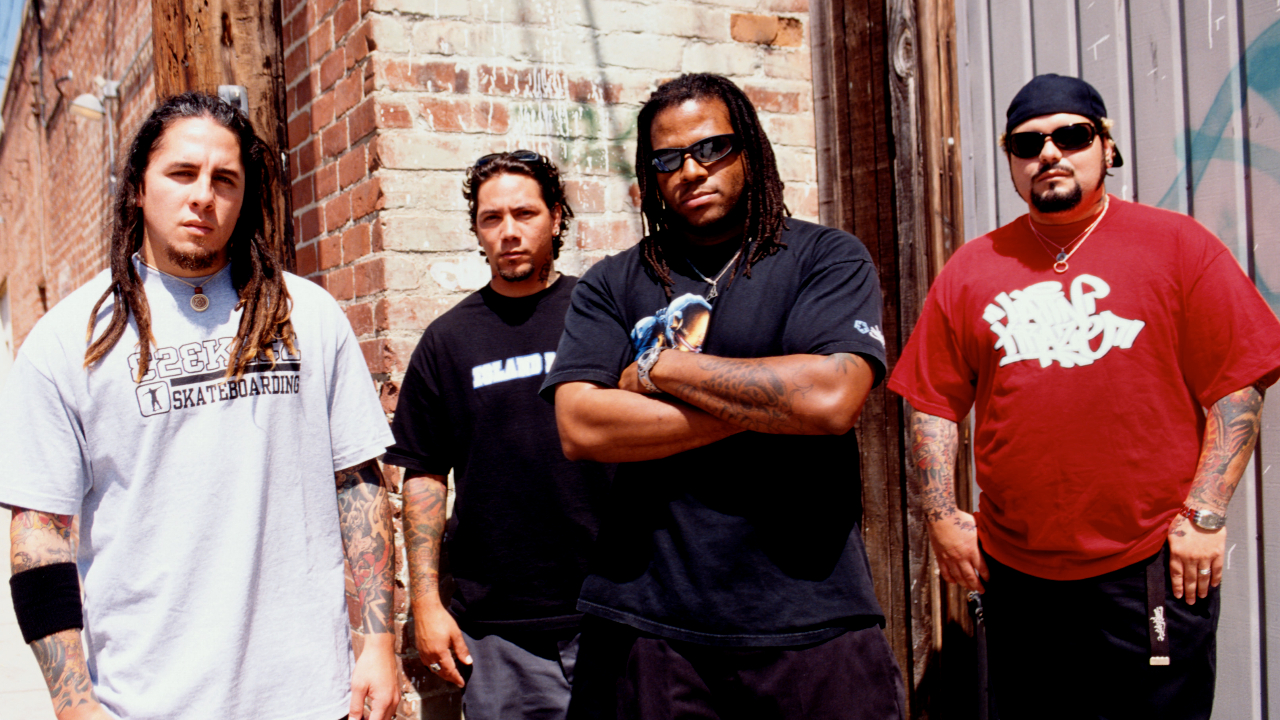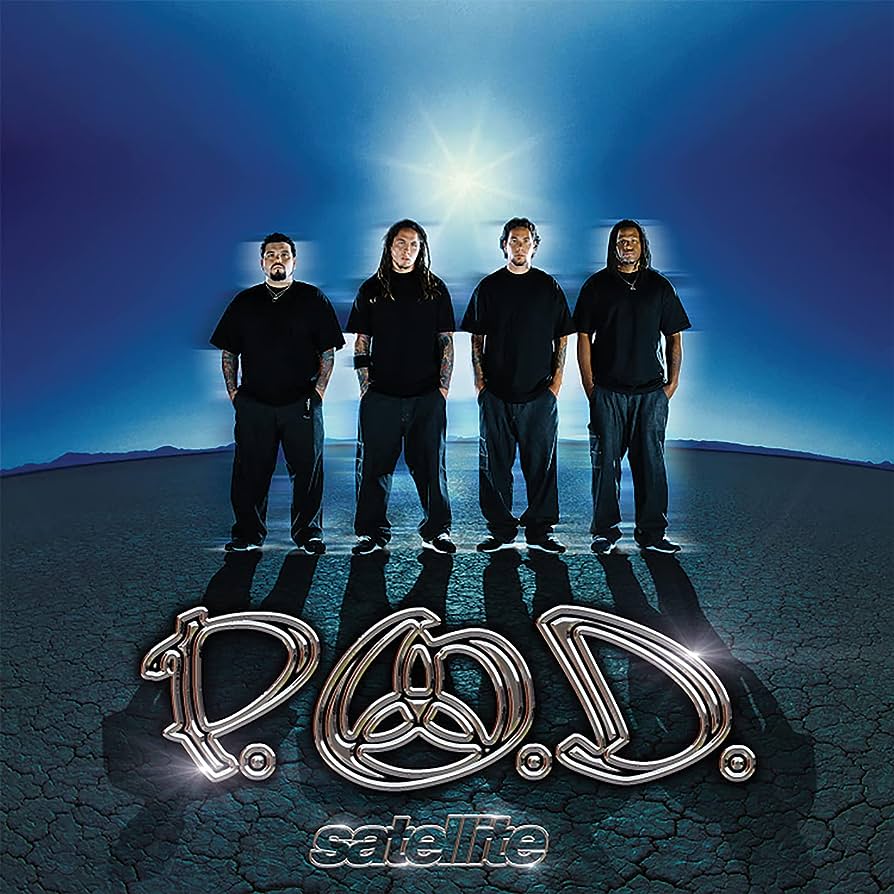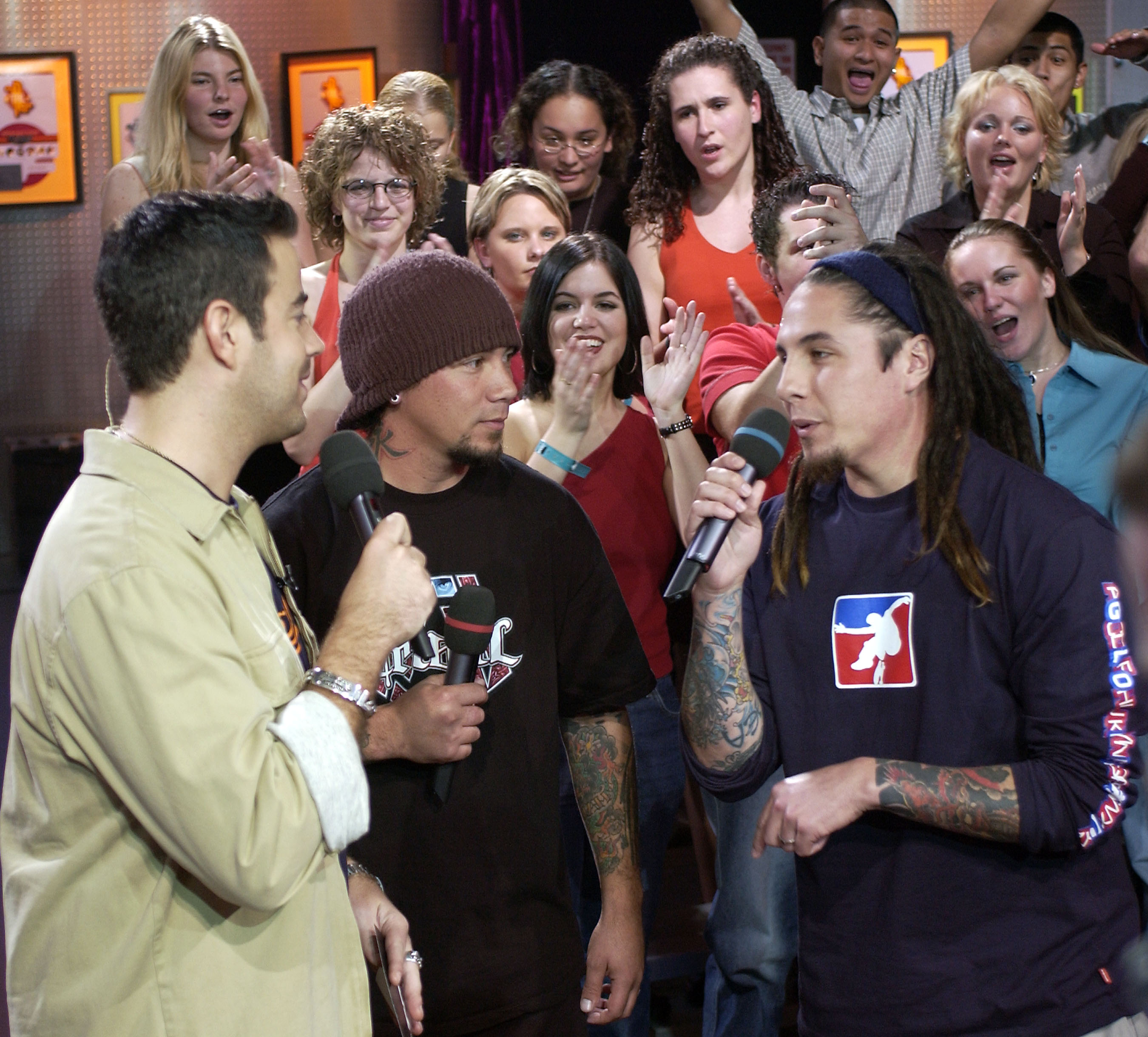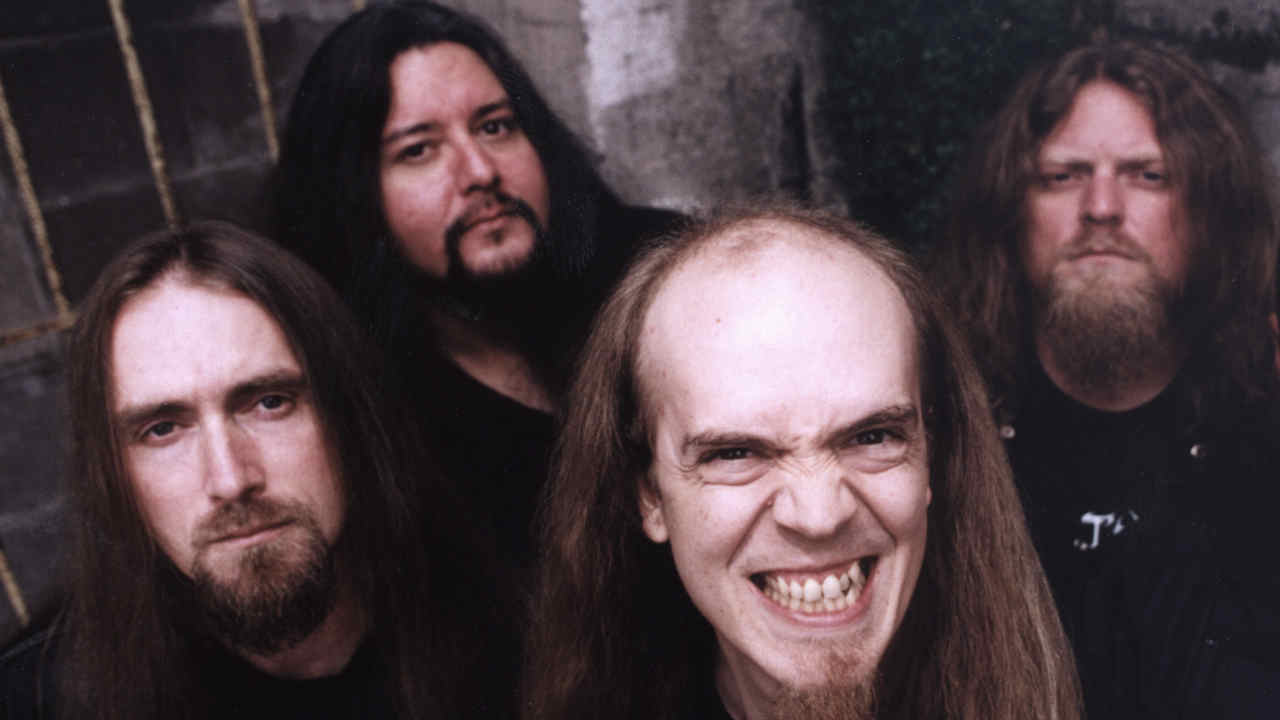“I look into the eyes of young people and there's still a disconnect – there's tragedy, there's hurt." How a tragic school shooting inspired P.O.D. to write nu metal's most affecting anthem with Youth Of The Nation
Christian nu metallers P.O.D.'s hit single resonated deeply with an American public seeing gun violence escalating in schools, and rocked by the tragedy of 9/11

P.O.D.’s Sonny Sandoval was on his way to get coffee when he heard the sirens and saw the police helicopters a couple of blocks away. It was March 5, 2001, and Sandoval and his bandmates had been holed up in a studio in their native San Diego, writing songs for the follow-up to 1999’s million-selling breakthrough album The Fundamental Elements Of Southtown. But the commotion that greeted the band as they headed out for a caffeine fix suggested something was happening on their doorstep – and it wasn’t good.
“So we get back to the studio, turn on the TV, and we see the news that there’s been a shooting at a school literally two blocks away,” says Sandoval. “We just sat there, glued to the TV: ‘What the hell is going on?’”
The grim news unfolded: a 15-year-old boy, Charles Andrew Williams, had gone on a shooting spree at the nearby Santana High School, killing two fellow students and wounding 13 other people before being apprehended by police. It was the latest in a depressingly long line of school shootings, the most notorious of which had taken place at Columbine High School in Colorado two years earlier, in which 15 people died.
“Here we were, stuck in the studio, feeling helpless,” says Sandoval. “This is our city, we’re heartbroken. But then we thought, ‘We’re musicians, we’re a writing a record, we gotta make a song about it.’”
The track that came out of the tragedy, Youth Of The Nation, gave P.O.D. their biggest hit and nu metal one of its most enduring anthems. This atmospheric yet urgent song held a mirror up to American society, asking just what was driving a generation of teenagers to commit harm to themselves and others. But the hope at its core inadvertently provided a glimmer of positivity to a country left shellshocked by the 9/11 terror attacks.

Positivity is what set P.O.D. apart from the nu metal and rap-rock pack - a product of their Christian faith. “We never claimed to be a ‘Christian band’,” says Sandoval, who embraced religion at 18 after his mother was diagnosed with cancer. “But when I found my faith in Jesus, it was a real experience. For me, it was a case of, ‘I want to share this’, and music was the universal way to do it.”
P.O.D.’s first album, 1994’s Snuff The Punk, came out the same year as Korn’s debut, and Sandoval’s band were soon shoehorned into the burgeoning nu metal movement alongside them. “We got lumped in with Body Count, because we’re from the hood and we’re a band of colour,” says the singer. “Then we got lumped in with Rage Against The Machine. So when the nu metal thing came along, we were just, like, [shrugging] ‘OK, cool.’”
Sign up below to get the latest from Metal Hammer, plus exclusive special offers, direct to your inbox!
The success of The Fundamental Elements Of Southtown meant P.O.D. had the wind in their sails when it came to the follow-up. They were already deep into the writing process when the Santana High School shooting took place. It couldn’t help but stir memories of the Columbine killings two years earlier. In the wake of that earlier tragedy, they had been invited to Colorado to play what Sandoval calls a “show of healing” organised by students who had survived the massacre. Yet here they were again, history repeating itself in the same senseless fashion.
They sat in the studio in San Diego, watching the news in disbelief. “We were going, ‘What’s happening with this craziness? What’s wrong with the kids today, with the youth of the nation?’” says Sandoval.
As they talked, guitarist Marcos Curiel began strumming sombre chords. “We just started to jam,” says Sandoval. “Just to get out what we were feeling.” A vocal hook came to the singer: 'We are, we are… the youth of the nation.'
The band began putting meat on the bones of the song, christened Youth Of The Nation after that massive hook, as they decamped to Los Angeles to work on parent album Satellite with producer Howard Benson. They knew how they wanted it to sound: heavy but atmospheric, with big timpani drums beating out a martial rhythm. Sandoval’s lyrics came late in the process. “The guys hadn’t even heard them when I went in and did it,” he says. “It was, like, ‘Dude, this is a powerful story. We knew we were onto something.”
The song’s first verse echoed the Santana and Columbine school shootings, telling the story of a similar tragedy through the eyes of a teenage killer’s victim. But it shifted the camera to focus on the other problems afflicting the same generation: depression, bullying, anxiety – all viewed with sympathy and without judgment. The introduction of a children’s choir near the end of the song kicked it alls to another emotional level.
The original plan was to use P.O.D. fans to sing on the track. A group of kids were actually in the studio ready to record their parts when the band’s attorney called, saying that the band could land in hot water for contravening union rules and California labour laws. Howard Benson quickly put in a call to a choir director named Bobby Page, who swiftly gathered five boys and five girls to sing on the track.
“We threw a little barbecue, we played them the song, explained it, and they just sang it,” says Sandoval, who was reduced to tears during the performance. “It was a beautiful moment. We’ve run into adults on the road and they’ve gone, ‘Hey man, I was one of the kids in that choir!’”
The first single from Satellite, uplifting mosh pit anthem Alive, hit No.2 on US Alternative Radio when it was released in July 2001, ramping up expectation. The album itself was scheduled for release on September 11, 2001. “We had stickers and beach balls saying, ‘P.O.D.’s Satellite… 9/11,’” recalls Sonny. “We played [starmaking MTV show] TRL four days earlier in Battery Park, not far from the Twin Towers.”
P.O.D were back in California when the planes struck the World Trade Center on the morning of September 11. They were supposed to play a release show in Hollywood that evening, but the gig was pulled in the wake of the attacks. “Everything just stopped,” says Sonny. “Our record didn’t matter at that point. It was just about being there for each other, and being there for the world if we needed to be.”
Exactly a week after the 9/11 attacks, Satellite entered the Billboard charts at No.6. Music gave people something to cling to amid the waves of grief and chaos, but P.O.D. offered something more than blind patriotism or raw rage. “Big time,” says Sonny. “We’re this band from Southtown, Californian, saying, ‘Man, I am so happy to be alive, I am grateful for every single breath I take.'”

That aura of positivity hadn’t faded by the time Youth Of The Nation was released as a single that November. It may have been inspired by an entirely different tragedy, but the opening lines could have been written about 9/11: 'Last day of the rest of my life/I wish I would’ve known cos I didn’t kiss my momma goodbye.’
Still, the video made the song’s subject clear. A mini-movie featuring a group of disaffected teens taking a literal and symbolic road trip across America that starts in bleak black-and-white and ends in hopeful colour was cut in with footage of the band performing in front of a wall covered in high school yearbook photos. “They were random photos we pulled out of an old yearbook,” says Sonny. “We had to blur and rip the photos for because of copyright, but it gave it a more eerie feeling. We were saying, ‘There’s no colour, there’s no race, there’s no religion… these are you people, they’re human beings, they could be your kids.”
Youth Of The Nation reached No.28 on the Billboard Hot 100 and gave them a Top 40 hit in the UK. The song would be nominated for a Grammy for Best Hard Rock Performance in 2003 (it lost out to Foo Fighters’ All My Life). More impressively, it received the pop-culture equivalent of a papal blessing when it was spoofed by Weird Al Yankovic as part of his 2003 single Angry White Boy Polka – one of the biggest compliments any band can receive. “Come on, it’s Weird Al,” laughs Sonny. “That’s so cool.”
Today, Youth Of The Nation is P.O.D.’s most streamed song and the one they’ve played live more than any other. “We played some huge festival and all these younger bands were watching us – Underoath, Of Mice And Men, We Came As Romans,” says Sandoval. “When we finished, they went, ‘Dude, when you play that song anywhere in the world, does it go off like that?’ And we were, like, ‘You know what? It does.’”
But while the song’s impact hasn’t abated, neither have the events that inspired it. Astoundingly, there have been more than 120 separate fatal school shootings in the USA since 2000, with more than 300 people killed in total.
“I look into the eyes of young people and there's still a disconnect – there's tragedy, there's hurt,” says Sandoval. “For me being a man of faith, I believe there's a disconnect between people and God. But that’s the message of a song like Youth Of The Nation: we’re here, we believe in each other, we’re gonna make it.”
Dave Everley has been writing about and occasionally humming along to music since the early 90s. During that time, he has been Deputy Editor on Kerrang! and Classic Rock, Associate Editor on Q magazine and staff writer/tea boy on Raw, not necessarily in that order. He has written for Metal Hammer, Louder, Prog, the Observer, Select, Mojo, the Evening Standard and the totally legendary Ultrakill. He is still waiting for Billy Gibbons to send him a bottle of hot sauce he was promised several years ago.

